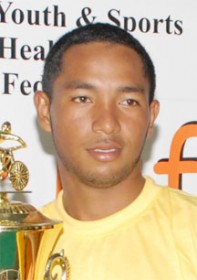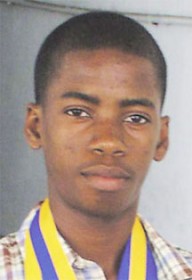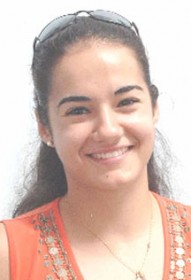One of the largest teams ever fielded by Guyana at the Commonwealth Games concluded their assignment in India with a single medal, a bronze plus the considerable embarrassment of the defection of its entire three-member boxing team. It was by no means one of those episodes in the history of sport which we will remember with anything resembling fondness.

And yet, those who are surprised at the performance of the team you must surely ask yourself whether you have not been afflicted by a considerable measure of naivety, a complete failure to understand the nature and extent of the crisis that continues to afflict sports in Guyana.
At the heart of that crisis is what, unquestionably is a questionable official commitment to sport as a facet of nation-building. Our financial investment in the development is a mere fraction of that which is is invested by other CARICOM countries, not least, Jamaica and Trinidad and Tobago. In truth, our returns from India are proportionate to our investment. Out of little, cometh little. Even a single gold medal would almost certainly have generated an outpouring of official praise and a surfeit of excitable media commentary. Instead, setting aside our lone bronze medal, the only real talking point is the team’s return minus its three boxers. The Delhi experience ought to be a sobering lesson. Whether or not that lesson will be learnt is another matter altogether.
Guyana has been competing at the Commonwealth Games – formerly British Empire Games – for more than 50 years; and yet, over all these years, the powers-that-be have remained entirely insensitive to just what it takes for our athletes to excel. It revolves around an understanding that sport, like education, like health, like housing, like physical infrastructure is an investment in the development of a nation and in the positive projection of its image across the world; and like those other sectors the development of sport requires financial investment. There is simply no other way. Meaningless platitudes and wishful thinking do not help.

Coming hot on the heels of the Amazon Conquerors’ woeful misadventure in South Africa, Guyana’s dismal performance in India ought surely to awaken the authorities to the reality that there is no place for lip service. Talent, commitment and hard cash must be wedded if we are to produce outstanding sportsmen and women. Those nations that succeed in sport and which, through that success, secure many positive spinoffs including international marketing that transforms itself into real earnings, understand only too well what it takes. Certainly and unlike Guyana they understand that it is an absolute folly, no less, to pursue a policy of hastily putting together teams for major competitions over a matter of a few months and then commence a continuous media drumbeat about the prospects of success that is rooted in little more than wishful thinking. Those nations with sounder, better-thought-out policies, commence their preparations far in advance of major events and those preparations are backed by the requisite material support. As for supporting facilities Guyana clearly light years behind a standard that is even remotely close to that which is considered acceptable in modern sport.
In Jamaica and Trinidad and Tobago, the region’s two most successful sports nations, government shoulders more than 80 percent of funding through two agencies specifically established for the purpose. Our own National Sports pales into insignificance beside these two bodies. They appear to thrive principally on selective modest handouts apart from what little is put into national sports awards.

Athletes and sports must surely be sick and fed up of the clichéd “lack of funds” explanation each time that the various national associations approach government for help, a circumstance that gives rise to the inevitable and only option of having athletes running around cap in hand, fending for themselves in the cause of their country. We can only hope that the recent state allocations of $20m and $5m, respectively, to the national cricket and rugby sevens teams marks a break with a shameful tradition.
The fact that the 2010 Commonwealth Games were hosted by a developing country and at significant cost ought to be an object lesson for Guyana. We can no longer be under any illusions regarding the increasing recognition being given to sport by countries that are part of what used to be known in another political era as the Third World. There is no Third World in sport. Developed and underdeveloped nations excel at the very highest level and even if an argument is made for the disparity between the levels of development between India and Guyana, Jamaica, Trinidad and Tobago and the Bahamas, countries that have excelled at the very highest levels in one sport or another, represent much fairer comparisons.
If we are to learn from the lessons of the 2010 Common-wealth Games the Government of Guyana can do worse than render the NSC more relevant by allocating it a budget (properly administered, of course) for sports development in the same manner that our Caribbean neighbors have invested in the Jamaica Development Company and the Trinidad Sports Company, respectively.

An actual assessment of our performance in India leaves little to write home about. Guyana’s best hope for a medal in India hinged on Allian Pompey, our United States-based middle distance runner. She duly obliged with a bronze – subsequently upgraded to a silver after a drugs-related disqualification – delivering her best performance of the season in the process. The fact that Pompey was the sole member of the Guyanese Commonwealth Games team with prior success at that level – among the team of four athletes, three boxers, two squash players, a 14-man rugby team, four table tennis players, two rifle shooters and three cyclists – tells us something about the overall quality of the team. Having won a silver at the Central American and Caribbean Games three months prior, Pompey was not wanting for form. The same can hardly be said for many of the other members of the Guyana team.
The standard of competition at the regional level in most sports disciplines is way below that which obtains at the Commonwealth Games. Cleveland Forde, the other Guya-nese CAC Games medalist, could hardly have been expected to repeat his CAC bronze medal feat since, in India, he was up against some of the world’s best distance runners. He may have set a national record in the 1500 metres, but that was nowhere near enough to land him a medal among the 16 finalists in the same event in India. So strong are the Kenyans that they need not field their ‘A’ team to dominate distance races. In the case of Forde’s second event, the 5,000 metres, a Ugandan took the gold and the Guyanese himself placed 18th. I mean no disrespect to Jeremy Bascombe and Adam Harris, the other two male track athletes on the Commonwealth Games team though I contend, unhesitatingly that they were simply out of their depth in the face of world class Jamaican and English competition. Both failed to get past the second round of the 100 metres.
Geron Williams’ 33rd place in the 120-mile road race – among riders, some of whom have ridden in the Tour De France – was, next to Allian’s bronze medal, the best performance by an individual athlete. Williams is 19, this was his very first road race and it occurs to me that he may well do Guyana proud in the future if we are prepared to invest in his progress. Williams’ namesake and teammate Marlon Williams lament that he was only informed of his selection two weeks before the Games is a poignant manifestation of the kinds of absurdities that usually attend the administration of sport in Guyana.
The rifle shooting team of Ransford Goodluck and Mahendra Persaud came closest to winning a second medal for Guyana, placing fifth in the Team Full Bore event. In this particular event Goodluck and Persaud delivered ther best performance of any regional team and that is an accomplishment worth noting. Comparable performances in boxing, rugby or table tennis, all of which are more prominent sports than rifle shooting, would have been heartening.
Boxing, historically, has been Guyana’s most prized sports discipline. However, amateur boxing continues to suffer a continual decline. Many of those influential George-town Gyms that played a critical role in nurturing some of the country’s more successful pugilists have disappeared. Additionally, the decentralization of sports in the Guyana Defence Force, the Police Force and the liquidation of the Guyana National Service – the powerhouses of local boxing have contributed to the decline of the sport. Time was, when Guyana held its own even against the mighty Cubans. The loss of that solid club structure upon which boxing was built has disappeared and with it the constant pool of talent that did us proud in the past. Latterly, we have not even been able to win the Caribbean championships. Part of the reason has to do with the fact that our boxers appeared unable to adjust to the computerized system of scoring or to some of the various other modern requirements and styles necessary to be successful. Here, funding for scoring equipment was one of the inhibiting factors.
What India did was to underscore just how dramatically our boxing has slippled in the international pecking order. Not only did the three-man team manage only a single victory among them but our losses, Boatswain’s to a Samoan boxer and Clevon Rock’s (woefully one-sided) to the Englishman Thomas Stalker were both unacceptable. While Dexter Jordon recorded an impressive first round victory over Lesotho’s Leo Thamahany, lack of international competition left the Guyanese flyweight less than sharp enough for the better opposition which he encountered against his next opponent, Kenya’s Nelson Njangiru. Ironically, India won seven boxing medals including three golds in New Delhi, was more than three decades away from winning their first title when Winfield Braithwaite opened Guyana’s account in 1978.
Our table tennis team comprising Idi Lewis, Paul David, Christopher Franklin and Edhino Lewis played their hearts out, and in the circumstances of lack of exposure and incentives, their 11th place team competition finish was commendable. Again, Guyana’s was the best performance of the English speaking Caribbean. When you add to this the third round finish of the Lewis/David doubles pairing and second round placing in singles for all four players, this was probably as much as we could have expected from the squad, two of whom are based entirely in Guyana and benefit from predominantly local and regional exposure.
Our rugby and squash teams simply had mountains to climb against other Commonwealth competitors most of whom dominate the sport at the international level. Despite the best efforts of The Guyana Rugby Football Union in preparing its team for its Sevens faceoff with New Zealand, Scotland and Canada in the Pool play, overnight success could not possibly have been expected. Guyana’s huge losses in all three games, hardened the players for Bowl competition against Tonga and their 21-14 defeat was by no means a disgrace.
Similarly Nicolette Fernandes was up against many higher world ranked players than herself and her second found finish in the singles was not surprising. Ashley Khalil, the locally- based junior, hopefully would have soaked up the experience from her two matches in the first round and Plate competitions.
By Guyana standards, our team for the Commonwealth Games was a sizeable one. As it happens, quantity does not always translate into quality.

